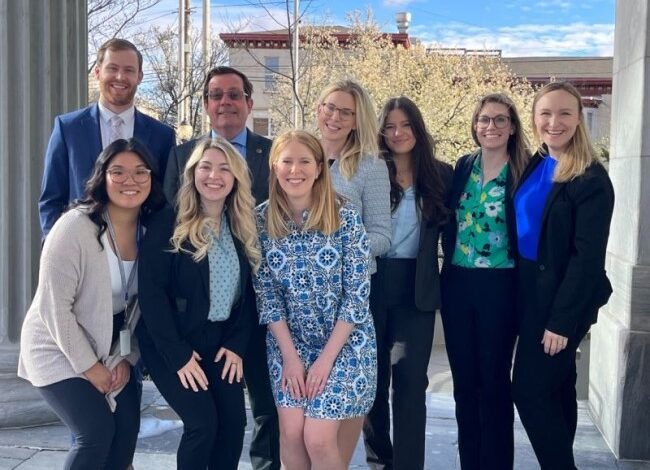Jackie Goldstein Fbi has spent more than two decades specializing in child advocacy, forensic interviewing, and criminal investigation. As the Supervisory Child/Adolescent Forensic Interviewer for the FBI, Goldstein has become an expert in cases involving child abuse, exploitation, and human trafficking. Over her career, Goldstein has shaped and redefined how child welfare systems handle cases of abuse and exploitation.
Early Career and Foundational Work of Jackie Goldstein Fbi
Goldstein began her career working with vulnerable populations, primarily focusing on the welfare of children and adolescents. She quickly rose through the ranks due to her determination and strong commitment to child welfare. Early on, she noticed significant gaps in the systems designed to protect vulnerable children from exploitation and abuse. This realization pushed her to pursue a specialized role in forensic interviewing. Forensic interviewing is a structured conversation with a child, designed to elicit detailed information about events a child may have experienced.
Jackie Goldstein recognized the need for skilled forensic interviewers in cases of child abuse and human trafficking. She knew that children were often unable to communicate their experiences clearly due to trauma and fear. These experiences were further complicated when victims belonged to underserved or marginalized communities. As she focused on improving interviewing protocols, she developed innovative ways to obtain crucial testimony from young victims. Her efforts greatly improved the likelihood of successful prosecutions while ensuring the child’s well-being.
See Also: Agnieszka Epam: A Pioneer in Digital Transformation
Forensic Interviewing Techniques and Protocols
Forensic interviewing is a highly specialized skill that requires a deep understanding of psychology and trauma-informed care. Jackie Goldstein Fbi extensive experience made her aware of how crucial it is to create a safe environment during interviews. A child who feels safe is more likely to communicate their experiences clearly, without fear of repercussions.
Goldstein emphasized using child-friendly language and creating an open, supportive atmosphere during interviews. This is critical to building trust with the child, which is essential to getting accurate information. Her work led to the development of improved forensic interviewing techniques, which have since been adopted by many organizations and law enforcement agencies. Her goal was always to ensure that the interview process never re-traumatized the child.
Additionally, Goldstein helped shape protocols that ensured multi-disciplinary teams worked together on cases involving child victims. Her efforts promoted collaboration between law enforcement, social services, medical professionals, and legal experts. This collaboration ensured a holistic approach to handling cases of abuse and exploitation, leading to better outcomes for victims.
Impact on the Philadelphia Child Welfare System
Jackie Goldstein’s work had a significant impact on how the Philadelphia child welfare system addressed crimes against children. When she joined the Philadelphia Children’s Alliance, she quickly identified key areas that needed improvement in forensic interviewing. At the time, the city’s response to child abuse cases was fragmented, with different departments working in silos. This led to delays and, in some cases, compromised the quality of investigations.
Goldstein’s approach was to unify the various departments involved in child abuse cases, ensuring more streamlined investigations. She developed forensic interviewing protocols tailored to Philadelphia’s unique challenges. These protocols allowed law enforcement and child protective services to collect reliable information from child victims without causing additional harm.
Additionally, Goldstein worked to implement a multidisciplinary approach within the Philadelphia Children’s Alliance. This approach enabled smoother coordination between agencies, improving response times and ensuring children received the help they needed more quickly. As a result, Philadelphia’s handling of child abuse and exploitation cases became a model for other cities.
Contributions to the Spanish-Speaking Forensic Interview Program
Another major area of Goldstein’s work involved the Spanish-speaking community, which is often underserved in forensic investigations. Many Spanish-speaking victims were not receiving adequate support due to language barriers and cultural differences. Goldstein recognized that the lack of appropriate services for these victims was a major issue in the child welfare system.
To address this, she helped develop a Spanish-speaking forensic interview program. This program ensured that victims from Spanish-speaking communities received the same level of care and support as English-speaking victims. Goldstein’s work in this area was particularly important given the growing Hispanic population in Philadelphia and across the United States.
The Spanish-speaking forensic interview program focused on providing culturally sensitive care and addressing the unique challenges faced by these communities. Goldstein ensured that the interviewers were fluent in Spanish and familiar with the cultural nuances that could affect a victim’s willingness to communicate. Her efforts greatly improved access to justice for Spanish-speaking victims of child abuse and exploitation.
Work with Homeland Security Investigations (HSI)
Jackie Goldstein’s career also included significant contributions during her time at Homeland Security Investigations (HSI). HSI deals with many cases involving human trafficking, child exploitation, and cross-border crimes. Goldstein’s expertise in forensic interviewing made her an invaluable asset to HSI, where she played a vital role in developing strategies to address these complex cases.
At HSI, Goldstein helped develop interviewing protocols for victims of human trafficking. These protocols were designed to consider the trauma and manipulation that trafficking victims often endure. By refining the techniques used to interview these victims, Goldstein ensured that investigators could gather crucial information without causing further harm to the victims.
Her work with HSI also focused on training law enforcement personnel. Goldstein understood that many officers lacked the skills necessary to interview child victims or trafficking survivors effectively. She conducted extensive training programs to educate law enforcement on best practices in forensic interviewing. This training improved the quality of investigations and increased the number of successful prosecutions.
Leadership Role By Jackie Goldstein Fbi
In her current role as the Supervisory Child/Adolescent Forensic Interviewer for the FBI, Jackie Goldstein oversees a team of interviewers who handle some of the nation’s most sensitive cases. She is responsible for ensuring that interviews with child victims of abuse, exploitation, and trafficking are conducted in a manner that prioritizes the child’s well-being while also obtaining the necessary information for investigations.
Under Goldstein’s leadership, the FBI has expanded its forensic interviewing capabilities, particularly in cases involving human trafficking and child exploitation. Her expertise has been critical in developing the FBI’s response to these crimes. She has also been instrumental in shaping national policies on how forensic interviews should be conducted, ensuring that best practices are followed across the country.
Goldstein’s role requires her to work closely with other federal agencies, local law enforcement, and non-governmental organizations. Her collaborative approach has helped create a network of support for child victims and has improved the FBI’s ability to investigate and prosecute cases of abuse and trafficking.
Challenges and Successes in Fighting Human Trafficking
One of the most significant challenges Jackie Goldstein has faced throughout her career is the complexity of human trafficking cases. Trafficking victims are often manipulated into silence, making it difficult for law enforcement to gather the information needed to build a case. Additionally, traffickers use a variety of tactics to control their victims, including threats of violence, which makes victims reluctant to cooperate with investigators.
Goldstein’s approach to overcoming these challenges has been to focus on building trust with victims. She has developed specialized interview techniques that help trafficking victims feel safe and supported during the interview process. Her efforts have led to an increase in the number of trafficking victims who are willing to share their experiences, which has resulted in more successful prosecutions.
Another challenge has been the sheer volume of cases involving child exploitation. The rise of the internet has made it easier for predators to target and exploit children. This has led to an overwhelming number of cases for law enforcement agencies to handle. Goldstein has worked tirelessly to ensure that every case is given the attention it deserves, and she has helped develop strategies to manage the increasing workload.
Despite these challenges, Goldstein has seen many successes throughout her career. Her work has led to the rescue of countless children from abusive situations and has brought justice to those responsible for these crimes. She has also been recognized for her contributions to the field of forensic interviewing and child advocacy.
Legacy and Continuing Impact
Jackie Goldstein’s contributions to child advocacy, forensic interviewing, and law enforcement will continue to make a lasting impact for years to come. She has set new standards in the field with her innovative approaches to interviewing child victims and her commitment to improving the welfare system. Law enforcement agencies across the country now widely use the protocols she developed, ensuring they provide children with the care and support they need during investigations.
Goldstein has also significantly impacted the Spanish-speaking forensic interview program. She has improved access to justice for many victims who might have otherwise been overlooked by providing culturally sensitive services. As a result, more victims are coming forward, and authorities are successfully bringing more predators to justice.
Her legacy extends through her work with Homeland Security Investigations and the FBI. She has played a key role in shaping how law enforcement handles cases of human trafficking and child exploitation. Her leadership has elevated the quality of investigations and fostered a more victim-centered approach within law enforcement.
Conclusion: Jackie Goldstein Fbi
Jackie Goldstein’s career is a testament to her unwavering commitment to child advocacy and forensic interviewing. Her work has reshaped how law enforcement, social services, and the judicial system handle cases involving child victims. Through her leadership at the FBI and her contributions to Homeland Security Investigations and the Philadelphia Children’s Alliance, Goldstein has made a lasting impact on the lives of countless children. Her legacy will continue to influence how forensic interviews are conducted, ensuring that child victims receive the care and support they need to heal.



